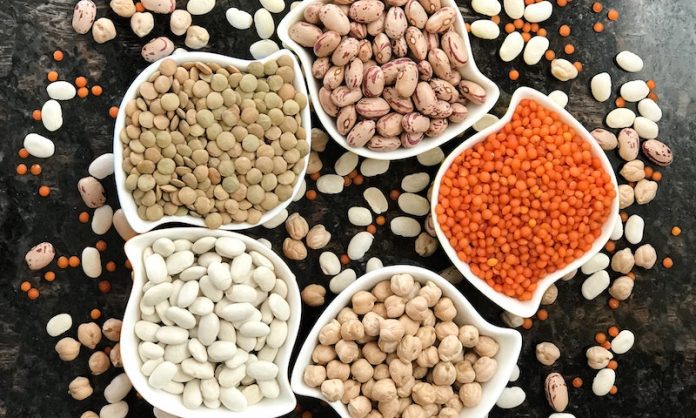
Scientists from the Physicians Committee found that eating a vegan diet high in legumes could help people lose weight effectively.
A vegan diet contains only plants (such as vegetables, grains, nuts, and fruits) and foods made from plants. Vegans do not eat foods that come from animals, including dairy products and eggs.
Legumes — a class of vegetables that includes beans, peas, and lentils — are among the most versatile and nutritious foods available.
Legumes are typically low in fat, contain no cholesterol, and are high in folate, potassium, iron, and magnesium.
Previous research has found that eating different food groups and nutrients can have differential effects on body weight, body fat, and insulin sensitivity.
Insulin sensitivity refers to how sensitive the body’s cells are in response to insulin.
High insulin sensitivity allows the cells of the body to use blood glucose more effectively, reducing blood sugar. Some lifestyle and dietary changes may help improve this sensitivity.
In the study, researchers aimed to find how food group, nutrient intake, and diet quality change after 16 weeks on a low-fat vegan diet.
They also wanted to see what associations those changes have with changes in body weight, body composition, and metabolic health.
The team tested 219 healthy adults in the Washington DC area, who had a body mass index (BMI) between 28 and 40.
These people were assigned to either follow a low-fat vegan diet or make no diet changes.
The low-fat, vegan diet derives approximately 10% of energy from fat, with weekly classes including dietary instruction, group discussion, and education on the health effects of plant-based nutrition. Control group participants continued their usual diets.
The researchers found that fruit, vegetable, legume, meat alternative, and whole grain intake strongly increased in the vegan group.
On the other hand, intake of meat, fish, poultry, dairy products, eggs, nuts, seeds, and added fats decreased.
Moreover, decreased body weight was most linked to increased intake of legumes and decreased intake of total meat, fish, and poultry.
People consuming a low-fat vegan diet also increased their intake of carbohydrates, fiber, and several micronutrients and decreased fat intake.
Reduced fat intake was linked to reduced body weight and reduced fat mass. The team also found that the vegan diet group had reduced insulin and better diet quality.
These findings suggest that when compared with usual diets, intake of plant foods increased, and consumption of animal foods and added fats decreased on a low-fat vegan diet.
The team says increased legume intake can be the best single food group for weight loss. Diet quality is improved on the low-fat vegan diet, which helps improve weight loss and metabolic health.
These findings suggest that increasing low-fat plant foods and reducing high-fat and animal foods may help decrease body weight and boost fat loss and that a low-fat vegan diet can improve measures of diet quality and metabolic health.
The research is published in the Journal of the Academy of Nutrition and Dietetics and was conducted by Hana Kahleova et al.
Copyright © 2022 Scientific Diet. All rights reserved.








